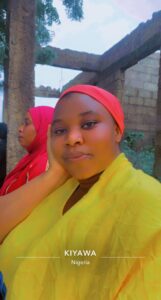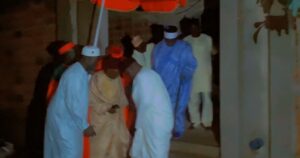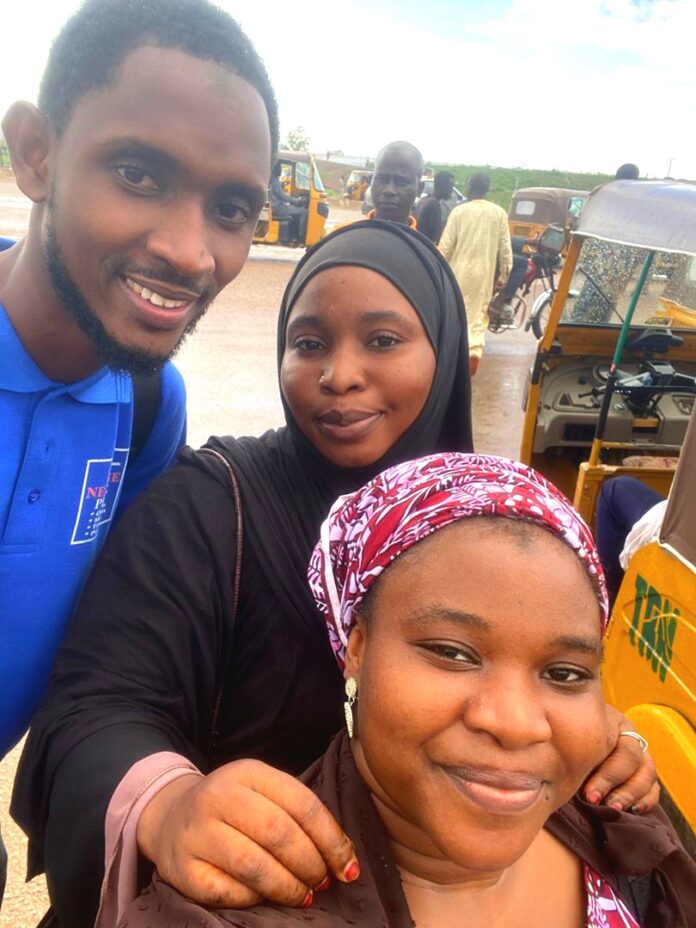A Journey To Yobe: My exploration begins, by Sakinat Musa Abubakar
I embarked on my journey to Yobe State with a mix of excitement and curiosity, eager to experience new places and immerse myself in the unfamiliar. At the break of dawn, around 7 am, I set out, leaving the familiar streets of Abuja behind.
The Kaduna road was a challenge—weathered and worn, it told a story of many journeys before mine. But as we drove through, the anticipation of what lay ahead kept my spirits high. Soon, we entered Zaria, a city that seemed to have leaped straight out of a movie. The sight was unique—stones stacked one atop the other, creating a rugged yet charming landscape.
The Challenges
As we ventured further, Kano welcomed me with open arms—or rather, with the bustling chaos of Tumbin Giwa. The place lived up to its name, a dense hub of activity, teeming with people and life. The houses here struck me as particularly interesting, built in a style I had never encountered before. However, I couldn’t help but feel that the tight spaces and congested buildings looked somewhat awkward. Perhaps the architects in Kano could consider exploring new designs that allow more room to breathe.
But what truly stood out to me in Kano was the experience of riding in a Keke Napep. I quickly noticed that the drivers seemed to be moving at a pace that could be mistaken for trekking. Frustrated by the slow progress, I asked one driver why they all drove so slowly. His response left me speechless: “If we drive fast, our fuel will finish. It’s a way of managing it.” At that moment, I couldn’t help but think, “Ahhh, President Tinubu, please let the poor breathe.” The reality of the situation hit me hard—people were adapting to rising fuel costs in the most practical, albeit slow, ways.
Despite the sluggish Keke ride, we received a wonderful reception in Kano by our Content Editor Aisha MusaAuyo. We took a moment to express our condolences to her and her family following the recent loss of her father.
To lift our spirits, we decided to indulge in a local delicacy—Gurasa. Aunty Aisha introduced us to this tantalising treat, and I must say, I owe her my deepest gratitude. The Gurasa was so delicious that I found myself eating and eating, unable to stop. It was a flavour I wished I could savour for days on end.
READ ALSO: Father of Many: Dr Gimba’s selfless support for Nigeria youths, by Musa Sakinat Abubakar
By around 10 am the next morning, we were set to leave Kano and head towards Yobe State, the Pride of the Sahel. My anticipation grew, and I couldn’t wait to experience Yobe’s unique charm. However, the garage provided its own share of drama. We passengers insisted on a Sienna instead of a bus, but in the end, na bus we enter. They were smart enough to collect our money before revealing the vehicle we’d be taking—hmmm, very strategic.
I noticed that apart from me and my crew, Mohammed Kukuri and Maryam Umar, the rest of the passengers were mostly youth corps members heading to camp. Just a few kilometres outside Kano, our bus was stopped by NDLEA. With only three ladies in an 18-seater bus and one guy already looking suspicious, I wasn’t surprised. The search revealed that someone was indeed guilty, but, you know our system— a token freed him, and we moved on.

The real drama began after we passed Jama’are in Bauchi State. We encountered a stretch that looked more like a river than a road. All the cars were stranded, and we were told we’d have to pay to get pushed past the water. It was the most terrifying experience of the trip. The men got out to cross the water on foot while we ladies stayed in the bus as it was pushed. All manners of prayers began when we got stuck in the middle of the water—apparently, a stone was preventing the car from moving forward.
My guy, Kukuri, almost drowned when he slipped, but thankfully, someone helped him cross over. We were delayed for two to three hours at that spot. Reflecting on the experience, I couldn’t help but plead with the governors, members, and business tycoons of Arewa: please, put us at heart and give us good access roads. I now see why flooding is all over the news, particularly in our states.
The Royal Welcome in Yobe: Tradition and Hospitality
Finally, we arrived in Yobe, where we were treated as VVIP guests. We were taken to the Emir of Fika’s residence, HRH Alhaji Dr. Muhammadu Abali, where his beautiful wife, Hajiya Khadija Gimba welcomed us wholeheartedly. They served food after food, plus hot tea, and I couldn’t help but think, “Una wan kill me with food.” The hospitality was overwhelming, but in a delightful way.


Before bedtime, I heard a beautiful sound that reminded me I was in a royal house. The booming sound signaled the arrival of the Emir, and someone rushed in to tell us to come and witness it. Maryam and I quickly grabbed our veils and dashed out. Omo, it was truly entertaining! The traditional way of welcoming the Emir was both grand and intimate, filled with music and a sense of deep respect. I felt like I was part of this amazing culture and couldn’t help but start dreaming of marrying a king or prince already. 😄
Stay tuned for Part 2, where I delve deeper into the culture, people, and hidden gems of Yobe State. The adventure continues!
Follow the Neptune Prime channel on WhatsApp: https://whatsapp.com/channel/0029Va74ZvU2v1IqKByXoX3d
Do you have breaking news, interview request, opinion, suggestion, or want your event covered? Email us at neptuneprime2233@gmail.com



Just read. Really interesting! I like the style of writing. It displays talent, mastery of the language of communication and the art of writing! My first time of reading Sakina, though, seeing your write-ups consistently in Neptune Prime.
I must confess that Dr. Gimba has and still nurturing talents. These are exceptional, talented and intelligent youths, making everyone proud with their achievements. Seeing these crop of journalists, writers, gladden the hearts of people like us who value writing which promises glad tidings.
May you continue the good work, wishing you long life, good health and abundant blessings of Allah.
😊🙏 Thank you so much Sir, Ameeen Ya Rabbi